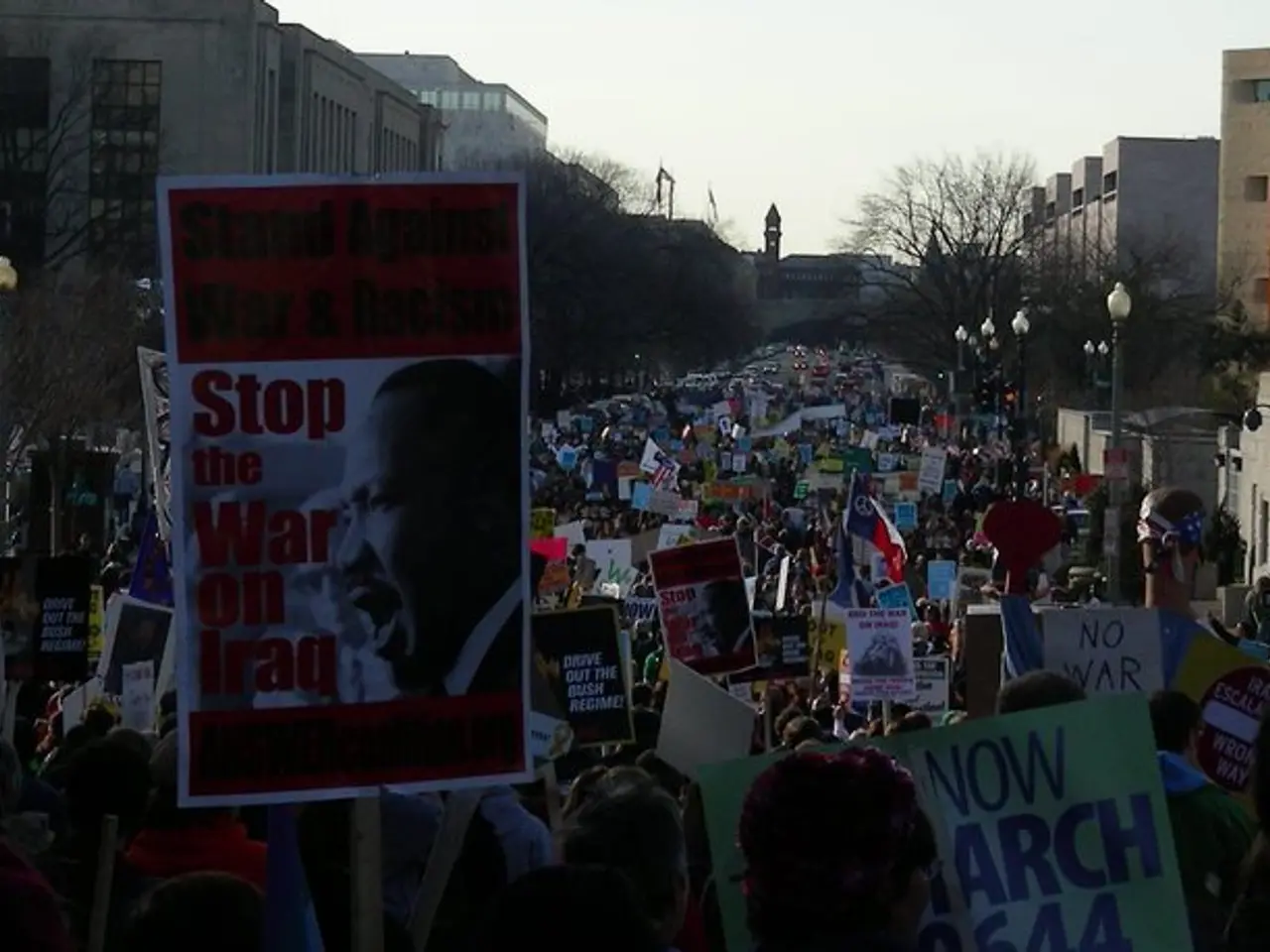Protest participants advocating for Palestine are apprehended by London authorities, amidst their disregard for a recently enacted law. A total of 365 individuals were detained.
In recent weeks, the streets of the United Kingdom have been filled with demonstrations and counterprotests, as tensions rise over issues such as the war in Gaza and immigration. One of the most contentious issues has been the ban on the pro-Palestinian group, Palestine Action, under terrorism legislation.
The ban, which was enacted in early July, was primarily due to the group's involvement in direct actions that caused "serious damage to property," including breaking into a Royal Air Force base and spray-painting military aircraft. However, critics argue that this use of counter-terrorism legislation is a misuse, as the group's acts, while criminal (property damage), do not fit international definitions of terrorism.
The banning of Palestine Action marks the first time a direct-action group has been banned as a terrorist organization in British history. The official rationale emphasized a "long history of unacceptable criminal damage" linked to the group. However, internal advice reportedly stated that Palestine Action was "highly unlikely" to advocate violence, and officials struggled to find evidence that the group posed a national security threat.
Opponents of the ban argue that it infringes on free speech and legitimate protest rights, claiming it equates political activism and civil disobedience with terrorism. The law criminalizes mere support and symbolic association, penalizes peaceful political expression, and has led to mass arrests of activists. Critics describe the law as "widely ridiculed" and embarrassing to the government.
The controversial ban has sparked legal challenges from Palestine Action and widespread civil disobedience. On Sunday, a number of groups are scheduled to march through central London to demand the safe release of Israeli hostages in Gaza. On Saturday, British police arrested 365 people in central London during a pro-Palestinian group demonstration. The organisers of the protest claimed that police were only able to arrest a fraction of the protesters, with most being given street bail and allowed to go home.
The scale of the upcoming protests and events will "put pressure" on the London police department, according to Deputy Assistant Commissioner Ade Adelekan. Supporters of Palestine Action are challenging the ban in court, claiming the government has gone too far in declaring the group a terrorist organization.
As the situation continues to unfold, it is clear that the ban on Palestine Action has sparked passionate debate and resistance across the UK. The group's actions, while controversial, have raised important questions about the use of counter-terrorism legislation and the limits of free speech and protest rights.
References:
- BBC News
- The Guardian
- Amnesty International
- Human Rights Watch
- The ongoing ban on Palestine Action, regarded as the first direct-action group to be designated as a terrorist organization in British history, has fuelled intense discussions about free speech and protest rights, posing questions about the use of counter-terrorism legislation. (General-News)
- Critics argue that the use of counter-terrorism legislation to ban Palestine Action, despite their criminal actions involving property damage, is misguided as it does not align with international definitions of terrorism. (Crime-and-Justice, politics)
- Despite the ban, protests in support of Palestine Action and the general Palestinian cause continue to persist, such as the upcoming march in London to demand the release of Israeli hostages in Gaza, which may further strain the London police department's resources. (gaza, protests)




